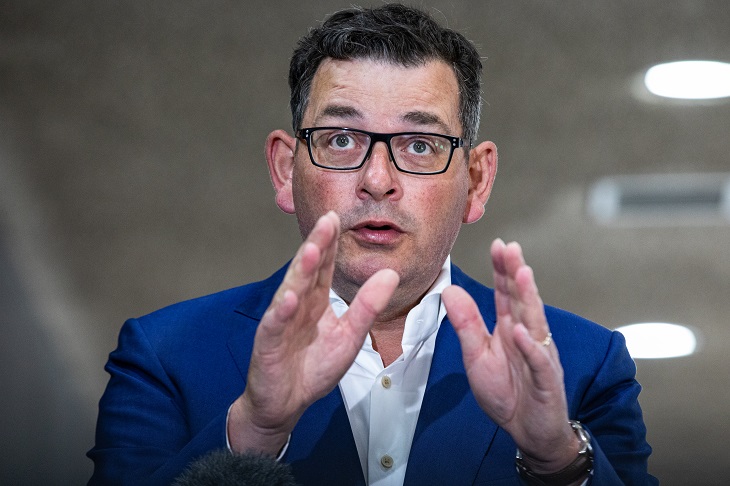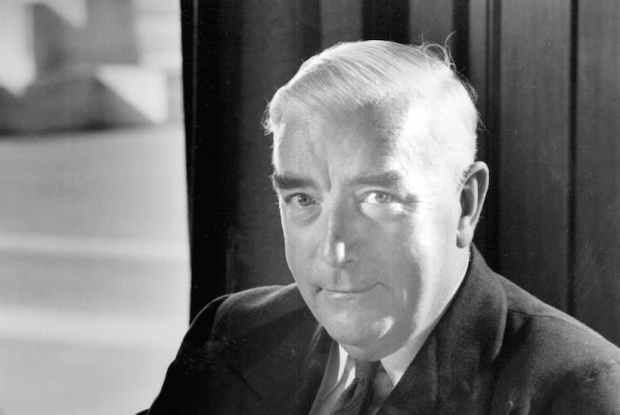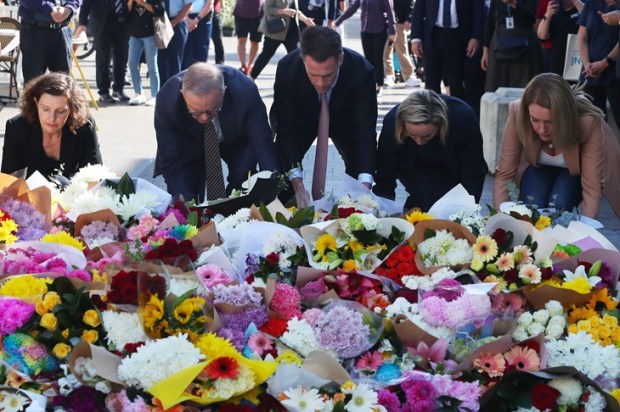The resignation of former NAB CEO Andrew Thorburn two weeks ago from his newly acquired role as CEO of Essendon Football Club raises deep concerns about the ability of Christians to serve in high-profile positions in business and government. Thorburn was forced to quit as the head of the club entirely because of his traditional Christian beliefs.
Not even 24 hours into the job and he was fired for the ‘crime’ of being associated with a Christian church that upholds traditional views of abortion, marriage, and sexuality. As widely reported, Thorburn is the volunteer chairman of ‘City on a Hill’, a network of Anglican churches that upholds Christian values that sit firmly within the mainstream of orthodox Christianity – ‘human life begins at conception, marriage is between a man and a woman and sex should be confined to marriage’.
However, Thorburn said on radio that he has always been an inclusive leader:
‘I’ve been a CEO for 13 years … I was a CEO of a bank that had 35,000 people, now I am going to a different organisation but in all those, there’s a diversity of people. Different races, sexual orientations, faiths, and cultures, that’s society. My role as a CEO is to ensure that the organisations that I lead, which I think my record stands for this, is inclusive and welcoming and caring and diverse.’
He also stated:
‘I genuinely and passionately believe people can hold different views on complex personal and moral matters while being able to live and work together respectfully and harmoniously. That is true inclusion whereby our communities are enriched by the difference.’
And yet, because his church believes what all mainstream Christians have generally believed, he was deemed a bigot and unfit to hold any sort of leadership position, even in a football club. ‘Not even his public support for diversity initiatives when at NAB, irrespective of his personal beliefs, is enough for those who regard themselves as the arbiters of our cultural norms.’ says John Roskam, a senior fellow at the Institute of Public Affairs.
On resigning within hours of his appointment as Essendon CEO, Thorburn said:
‘Today, it became clear to me that my personal Christian faith is not tolerated or permitted in the public square, at least by some and perhaps by many.’
Indeed, his resignation from his newly acquired role as CEO of Essendon Football Club raises deep concerns about the ability of Christians to serve in high-profile positions in business and government.
As John Roskam also points out:
‘It is understandable a church should would have a view on abortion. Why a football club should have one is less clear … The precedent has been set. To be the chief executive of an AFL club requires successful candidates to hold and espouse a view (and the correct view) on abortion and marriage.’
Remarkably, Victoria’s Premier Daniel Andrews regarded Thorburn’s religious beliefs as ‘absolutely appalling’. ‘Those views are absolutely appalling … That kind of hatred is just wrong. That’s not the first time I’ve made that point,’ the Premier said.
But who is being intolerant here? Who is vilifying whom here? Is it a Christian CEO or is it a Premier who cannot accept that a CEO is involved in the governance of an Anglican church that holds traditional views on abortion and sexuality?
The question is important because Victoria’s Racial and Religious Tolerance Act 2001 (RRTA) was created ‘to promote the full and equal participation of every person in a society that values freedom of expression’, and to ‘promote dispute resolution’ when people ‘vilify others on the ground of race or religious belief or activity’.
Thorburn puts it well when he said:
‘We are poorer for the loss of or great freedoms of thought, conscience, and belief that made for a truly diverse, just and respectful community.’
He also warned his ousting as Essendon CEO over his association with a Christian church sets a ‘dangerous precedent’ for religious tolerance in Australia.
‘It’s troubling that faith or association with a church, mosque, synagogue or temple could render a person immediately unsuited to holding a particular role,’ he said.
In response to comments regarding his own controversial remarks, Premier Andrews further renewed his criticism of Thorburn and his Christian Church. ‘People can get all upset about the fact that someone resigned. I’m much more focused on the fact that people are harming themselves and, sometimes, taking their own lives because of bigotry and prejudice,’ he said.
Is the Premier trying to suggest that Thorburn’s religious beliefs make people harm themselves and take their own lives?
As Thorburn correctly reminds us:
‘True tolerance, inclusion, and diversity also includes people of faith. Freedoms of thought, conscience, religion, and association are fundamental human rights, explicitly recognised in Victorian law in our Charter of Human Rights and Responsibilities and Racial and Religious Tolerance Act.’
The Victorian Racial and Religious Tolerance Act 2001 (Vic) was passed by a Labor government on June 27, 2000, and became law on 1 January 2001. Section 8(1) of the RRTA states:
‘A person must not, on the ground of the religious belief or activity of another person or class of persons, engage in conduct that incites hatred against, serious contempt for, or revulsion or severe ridicule of, that other person or class of persons.’
The RRTA says that motives for a remark are irrelevant and that it is also irrelevant whether the statement is actually true. Under the Act, the truth of a statement cannot be relied upon as a defence against the charge of vilification.
The burden of proof rests with the person who has been charged, instead of staying with the person who claims to be offended.
Further, section 10 of the RRTA says that, in determining whether a person has committed religious vilification, ‘It is irrelevant whether or not the person has made an assumption about the race or religious belief or activity of another person or class of persons that was incorrect at the time that the contravention is alleged to have taken place.’
What is more, since the truth is deemed irrelevant by the legislation, section 8 might be contravened by conduct which has the effect of inciting religious hatred even where the inciter had no intention to do so.
Of course, the RRTA does provide a few exemptions. Section 11 says that there is no contravention of sections 7 or 8 if the person is able to establish that the act was, in the circumstances, reasonable and in good faith for the purpose of genuine academic, artistic, religious, or scientific interest.
But is it in the public interest for Christians who hold traditional views to be hounded out of the public square? Will the Premier’s statement ‘promote the full and equal participation of every person in society’? Certainly not.
Dr Mark Durie, a highly respected Anglican priest based in Melbourne, also does not think so. He asks rhetorically:
‘Is it in the public interest for Christians who hold conservative religious views to be hounded out of the public square? Will this promote the full and equal participation of every person’s society?’
Arguably the Premier’s characterisation of City on a Hill’s teachings as ‘hatred’, ‘absolutely appalling’, and falsehood dressed up as ‘bigotry’ does incite contempt, revulsion, and ridicule among the community in general for this Christian group and all its religious members, thus constituting an instance of religious vilification as per the relevant legislation. Has Premier Andrews therefore, effectively breached the Victorian Racial and Religious Tolerance Act?
Augusto Zimmermann is professor and head of Law at the Sheridan Institute of Higher Education, and served as a Law Reform Commissioner in Western Australia. While lecturing (and coordinating) constitutional law and legal theory at Murdoch University, he was awarded the 2012 Vice Chancellor’s Award for Excellence in Research, as well as two consecutive Law School Dean’s Research Awards, in 2010 and 2011. He is also President of the Western Australian Legal Theory Association (WALTA) and Editor-in-Chief of The Western Australian Jurist law journal.
Got something to add? Join the discussion and comment below.
Get 10 issues for just $10
Subscribe to The Spectator Australia today for the next 10 magazine issues, plus full online access, for just $10.


























Comments
Don't miss out
Join the conversation with other Spectator Australia readers. Subscribe to leave a comment.
SUBSCRIBEAlready a subscriber? Log in